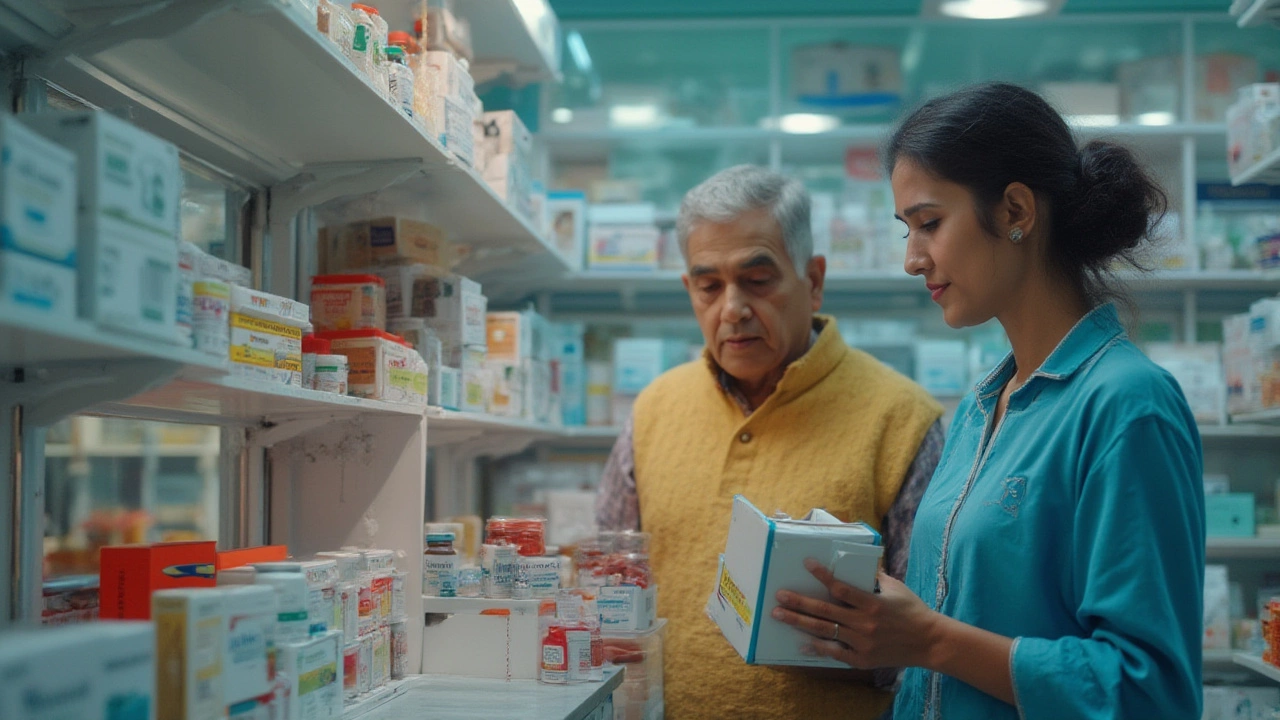Discover which diabetic pill tops the charts, why metformin remains the first-line choice, and how these medications are transforming living with type 2 diabetes.
Read MoreDiabetes Management: Simple Steps for Better Blood Sugar Control
Living with diabetes doesn’t have to feel like a constant battle. With the right plan, you can keep your sugar levels steady, feel more energetic, and avoid many of the complications that scare most people. Below we break down practical steps you can start today, plus a quick look at the newest Indian drug updates that matter for 2025.
Start with Food Basics
Food is the biggest lever you have. Swap refined carbs (white rice, soda, sweets) for whole grains, legumes, and plenty of non‑starchy veggies. A plate that’s half veg, a quarter protein (like lentils, paneer, or chicken), and a quarter complex carbs (brown rice, millets) works well for most Indian diets. Keep your portion sizes consistent – a small bowl of rice or a single roti is usually enough.
Don’t forget timing. Eating the same meals at similar times each day helps your body predict glucose spikes. If you’re on insulin, a steady schedule can make dosing easier and reduce the risk of low blood sugar.
Move More, Sit Less
Exercise isn’t just for weight loss; it directly improves insulin sensitivity. Aim for at least 150 minutes of moderate activity a week – brisk walking, cycling, or a quick home yoga flow. Even a 10‑minute walk after meals can lower post‑meal glucose spikes. If you’re new to exercise, start with short bursts and build up. The goal is consistency, not intensity.
Strength training is a hidden gem. Simple body‑weight moves like squats, push‑ups, or using a resistance band two to three times a week can preserve muscle mass, which helps your body use glucose more efficiently.
Stay on Top of Medication
Medications have evolved, and India now offers several cost‑effective options. Metformin remains the first‑line drug for most type 2 patients, but recent news about its discontinuation in some batches has raised concerns. If you hear about a recall, talk to your doctor immediately – they can switch you to a similar biguanide or adjust the dose.
For those needing extra control, newer agents like GLP‑1 agonists (e.g., semaglutide) are gaining popularity. They not only lower sugar but can aid weight loss, which further improves glucose control. Our article “Most Popular Diabetes Medications: Experts' Guide for 2025” dives deep into pros, cons, and cost considerations for Indian patients.
If you’re curious about weight‑loss benefits, “Can Metformin Really Help You Lose 30 Pounds?” explores real‑world results and warns against expecting miracle drops without diet and exercise.
Monitor, Adjust, Repeat
Regular blood‑glucose checks are your feedback loop. Aim for fasting and post‑meal readings a few days each week. When numbers drift, review your recent meals, activity, and stress levels. Small tweaks – like adding a handful of nuts or walking after dinner – can bring readings back into range.
Don’t overlook stress and sleep. Lack of sleep raises cortisol, which spikes blood sugar. Try to get 7‑8 hours of restful sleep and practice relaxation techniques (deep breathing, meditation) a few minutes each day.
When to Seek Professional Help
If you notice frequent highs (>180 mg/dL) or lows (<70 mg/dL), or if you develop symptoms like blurry vision, tingling in feet, or persistent fatigue, book an appointment. Early intervention can prevent long‑term damage to eyes, kidneys, and nerves.
Our tag page gathers all the latest Indian‑focused articles on diabetes, from medication updates to lifestyle hacks. Bookmark this page and return often – we keep adding fresh, evidence‑based content to help you stay ahead of the disease.
Take one step today: choose a healthier snack, walk a little farther, or call your doctor about your current meds. Small actions add up, and you have the power to manage diabetes on your terms.
Managing diabetes isn't a one-size-fits-all challenge. This article breaks down the hardest type of diabetes to control, digging into the reasons, the meds involved, and the everyday ups and downs. You'll find useful tips from real-life experiences and clear facts, not just textbook theories. If you're wondering why some cases seem so stubborn or if your struggles are normal, this is the read you need. Get the lowdown without the medical jargon.
Read MoreManaging diabetes requires careful attention to medications, as some can negatively impact blood sugar levels. Understanding which drugs should be avoided is crucial for effective diabetes management. This article explores medications that might interfere with your diabetes plan and offers practical tips for safe drug choices. Learn how to navigate the complexities of drug interactions in diabetes.
Read More






